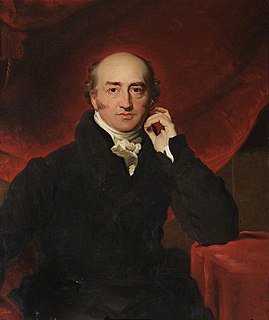
The Huns were a nomadic people who lived in Central Asia, the Caucasus, and Eastern Europe between the 4th and 6th century AD. According to European tradition, they were first reported living east of the Volga River, in an area that was part of Scythia at the time; the Huns' arrival is associated with the migration westward of an Iranian people, the Alans. By 370 AD, the Huns had arrived on the Volga, and by 430 the Huns had established a vast, if short-lived, dominion in Europe, conquering the Goths and many other Germanic peoples living outside of Roman borders and causing many others to flee into Roman territory. The Huns, especially under their King Attila, made frequent and devastating raids into the Eastern Roman Empire. In 451, the Huns invaded the Western Roman province of Gaul, where they fought a combined army of Romans and Visigoths at the Battle of the Catalaunian Fields, and in 452 they invaded Italy. After the death of Attila in 453, the Huns ceased to be a major threat to Rome and lost much of their empire following the Battle of Nedao. Descendants of the Huns, or successors with similar names, are recorded by neighboring populations to the south, east, and west as having occupied parts of Eastern Europe and Central Asia from about the 4th to 6th centuries. Variants of the Hun name are recorded in the Caucasus until the early 8th century.

Henry Alfred Kissinger is a German-born American politician, diplomat, and geopolitical consultant who served as United States Secretary of State and National Security Advisor under the presidential administrations of Richard Nixon and Gerald Ford. A Jewish refugee who fled Nazi Germany with his family in 1938, he became National Security Advisor in 1969 and U.S. Secretary of State in 1973. For his actions negotiating a ceasefire in Vietnam, Kissinger received the 1973 Nobel Peace Prize under controversial circumstances, with two members of the committee resigning in protest.

Henry VII was King of England and Lord of Ireland from his seizure of the crown on 22 August 1485 until his death in 1509. He was the first monarch of the House of Tudor.

West Germany is the common English name for the Federal Republic of Germany between its formation on 23 May 1949 and the German reunification through the accession of East Germany on 3 October 1990. During this Cold War period, the western portion of Germany and the associated territory of West Berlin were parts of the Western Bloc. West Germany was formed as a political entity during the Allied occupation of Germany after World War II, established from eleven states formed in the three Allied zones of occupation/Trizone held by the United States, the United Kingdom, and France. The FRG's provisional capital was the city of Bonn, and the Cold War era country is retrospectively designated as the Bonn Republic.

William Howard Taft was the 27th president of the United States (1909–1913) and the tenth chief justice of the United States (1921–1930), the only person to have held both offices. Taft was elected president in 1908, the chosen successor of Theodore Roosevelt, but was defeated for reelection in 1912 by Woodrow Wilson after Roosevelt split the Republican vote by running as a third-party candidate. In 1921, President Warren G. Harding appointed Taft to be chief justice, a position he held until a month before his death.

The Yom Kippur War, also known as the Ramadan War, the October War, the 1973 Arab–Israeli War, or the Fourth Arab–Israeli War, was an armed conflict fought from 6 to 25 October 1973 between Israel and a coalition of Arab states led by Egypt and Syria. The majority of combat between the two sides took place in the Sinai Peninsula and the Golan Heights—both of which were occupied by Israel in 1967—with some fighting in African Egypt and northern Israel. Egypt's initial objective in the war was to seize a foothold on the eastern bank of the Suez Canal and subsequently leverage these gains to negotiate the return of the rest of the Israeli-occupied Sinai Peninsula.

Cary Grant was an English-American actor. He was known for his Mid-Atlantic accent, debonair demeanor, light-hearted approach to acting, and sense of comic timing. He was one of classic Hollywood's definitive leading men from the 1930s until the mid-1960s.

Soylent Green is a 1973 American ecological dystopian thriller film directed by Richard Fleischer, and starring Charlton Heston, Leigh Taylor-Young, and Edward G. Robinson in his final film role. It is loosely based on the 1966 science fiction novel Make Room! Make Room! by Harry Harrison, with a plot that combines elements of science fiction and a police procedural. The story follows a murder investigation in a dystopian future of dying oceans and year-round humidity caused by the greenhouse effect, with the resulting pollution, depleted resources, poverty, and overpopulation. In 1973, it won the Nebula Award for Best Dramatic Presentation and the Saturn Award for Best Science Fiction Film.

The Watergate scandal was a major political scandal in the United States involving the administration of President Richard Nixon from 1972 to 1974 that led to Nixon's resignation. The scandal stemmed from the Nixon administration's continual attempts to cover up its involvement in the June 17, 1972, break-in of the Democratic National Committee headquarters at the Washington, D.C., Watergate Office Building.

The Byrds were an American rock band formed in Los Angeles, California, in 1964. The band underwent multiple lineup changes throughout its existence, with frontman Roger McGuinn remaining the sole consistent member. Although their time as one of the most popular groups in the world only lasted for a short period in the mid-1960s, the Byrds are today considered by critics to be among the most influential rock acts of their era. Their signature blend of clear harmony singing and McGuinn's jangly twelve-string Rickenbacker guitar was "absorbed into the vocabulary of rock" and has continued to be influential.

George Canning was a British Tory statesman. He held various senior cabinet positions under numerous prime ministers, including two important terms as Foreign Secretary, finally becoming Prime Minister of the United Kingdom for the last 119 days of his life, from April to August 1827.

The 1973 oil crisis or first oil crisis began in October 1973 when the members of the Organization of Arab Petroleum Exporting Countries (OAPEC), led by Saudi Arabia, proclaimed an oil embargo. The embargo was targeted at nations that had supported Israel during the Yom Kippur War. The initial nations targeted were Canada, Japan, the Netherlands, the United Kingdom and the United States, though the embargo also later extended to Portugal, Rhodesia and South Africa. By the end of the embargo in March 1974, the price of oil had risen nearly 300%, from US$3 per barrel ($19/m3) to nearly $12 per barrel ($75/m3) globally; US prices were significantly higher. The embargo caused an oil crisis, or "shock", with many short- and long-term effects on global politics and the global economy. It was later called the "first oil shock", followed by the 1979 oil crisis, termed the "second oil shock".

Julius Kambarage Nyerere was a Tanzanian anti-colonial activist, politician, and political theorist. He governed Tanganyika as prime minister from 1961 to 1962 and then as president from 1962 to 1964, after which he led its successor state, Tanzania, as president from 1964 to 1985. He was a founding member and chair of the Tanganyika African National Union (TANU) party, and of its successor Chama Cha Mapinduzi, from 1954 to 1990. Ideologically an African nationalist and African socialist, he promoted a political philosophy known as Ujamaa.

The 1973 Chilean coup d'état was a military coup in Chile that deposed the Popular Unity government of President Salvador Allende. Allende had been the first Marxist to be elected president of a liberal democracy in Latin America. On 11 September 1973, after an extended period of social unrest and political tension between the opposition-controlled Congress and the socialist President, as well as economic war ordered by United States President Richard Nixon, a group of military officers led by General Augusto Pinochet seized power in a coup, ending civilian rule.

Jaya Bachchan is an Indian actress and politician. She is a member of Parliament in the Rajya Sabha from the Samajwadi Party, serving four terms since 2004. Known primarily for her work in Hindi and Bengali cinema, she is noted for reinforcing a natural style of acting in both mainstream and "middle-of-the-road" cinema. She has received several accolades, including nine Filmfare Awards and the Padma Shri, the fourth-highest civilian honour awarded by the Government of India.

Robert James Fischer was an American chess grandmaster and the eleventh World Chess Champion. A chess prodigy, he won his first of a record eight US Championships at the age of 14. In 1964, he won with an 11–0 score, the only perfect score in the history of the tournament. Qualifying for the 1972 World Championship, Fischer swept matches with Mark Taimanov and Bent Larsen by 6–0 scores. After another qualifying match against Tigran Petrosian, Fischer won the title match against Boris Spassky of the USSR, in Reykjavík, Iceland. Publicized as a Cold War confrontation between the US and USSR, the match attracted more worldwide interest than any chess championship before or since.

Classical music generally refers to the art music of the Western world, considered to be distinct from Western folk music or popular music traditions. It is sometimes distinguished as Western classical music, as the term "classical music" also applies to non-Western art music. Classical music is often characterized by formality and complexity in its musical form and harmonic organization, particularly with the use of polyphony. Since at least the 9th century it has been primarily a written tradition, spawning a sophisticated notational system, as well as accompanying literature in analytical, critical, historiographical, musicological and philosophical practices. A foundational component of Western Culture, classical music is frequently seen from the perspective of individual or groups of composers, whose compositions, personalities and beliefs have fundamentally shaped its history.

The dreadnought was the predominant type of battleship in the early 20th century. The first of the kind, the Royal Navy's HMS Dreadnought, had such an impact when launched in 1906 that similar battleships built after her were referred to as "dreadnoughts", and earlier battleships became known as pre-dreadnoughts. Her design had two revolutionary features: an "all-big-gun" armament scheme, with an unprecedented number of heavy-calibre guns, and steam turbine propulsion. As dreadnoughts became a crucial symbol of national power, the arrival of these new warships renewed the naval arms race between the United Kingdom and Germany. Dreadnought races sprang up around the world, including in South America, lasting up to the beginning of World War I. Successive designs increased rapidly in size and made use of improvements in armament, armour and propulsion throughout the dreadnought era. Within five years, new battleships outclassed Dreadnought herself. These more powerful vessels were known as "super-dreadnoughts". Most of the original dreadnoughts were scrapped after the end of World War I under the terms of the Washington Naval Treaty, but many of the newer super-dreadnoughts continued serving throughout World War II.

The Saturn Awards are American awards presented annually by the Academy of Science Fiction, Fantasy and Horror Films; they were created to honor science fiction, fantasy, and horror in film, but have since grown to reward other films belonging to genre fiction, as well as television and home media releases. The Saturn Awards were created in 1973 and were originally referred to as Golden Scrolls.

The Non-Aligned Movement (NAM) is a forum of 120 countries that are not formally aligned with or against any major power bloc. After the United Nations, it is the largest grouping of states worldwide.



















